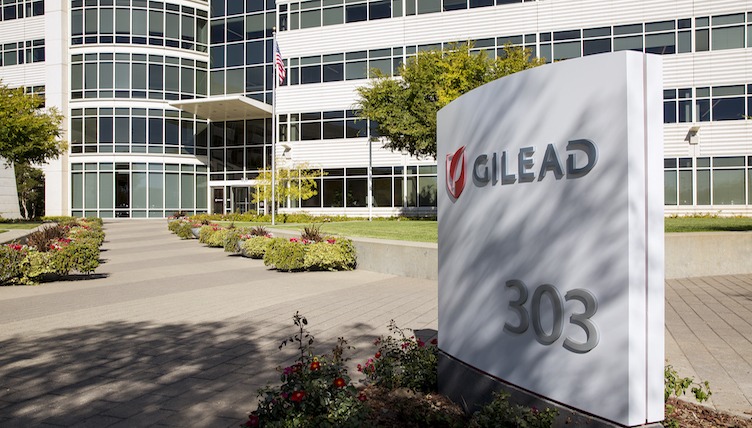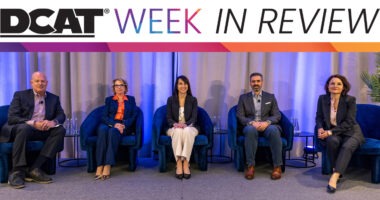The Rise of Gilead: Can It Be Sustained?
Gilead Sciences rose to the top of the pharmaceutical industry company rankings on the strength of its hepatitis C franchise, but will this be enough going forward?
That is the question for John F. Milligan, president and CEO of Gilead Sciences, who added the role of CEO to his responsibilities earlier this year in addition to his role as president, a position he assumed in 2008. Milligan has been with the company since 1990, when he started as a research scientist and has seen the ascent of the company from a small biopharmaceutical start-up to now a top-ten pharmaceutical company.
Inside Gilead’s ascent
Gilead’s ascent began in late 2013 with US Food and Drug Administration (FDA) approval of its hepatitis C drug, Sovaldi (sofosbuvir), the first oral treatment for hepatitis C. Sovaldi was Gilead’s top-selling drug in 2014 and was one of the industry’s top-selling drugs that year with 2014 sales of $10.28 billion, making it one of the most successful first-year launches for a new molecular entity. Sovaldi, which was approved by the FDA in December 2013 and in the European Union in January 2014, was the first drug that demonstrated safety and efficacy to treat certain types of hepatitis C virus (HCV) infection without the need for co-administration of interferon, which is administered by injection. Sovaldi is a nucleotide analog inhibitor that blocks a specific protein needed by the hepatitis C virus to replicate, and that mechanism of action was considered an important advancement as well as the ability to administer the drug orally. Gilead’s Harvoni, an oral combination of sofosbuvir and ledipasvir for treating HCV, was approved and launched in the US in October 2014, and has since surpassed Sovaldi and has become Gilead’s top-selling drug and one of the industry’s top-selling drugs.
For 2015, Gilead’s antiviral product sales were $30.2 billion compared to $22.8 billion in 2014 primarily due to sales of Harvoni, partially offset by a decrease in sales of Sovaldi, also used to treat HCV. For 2015, Harvoni had reported sales of $13.8 billion and Sovaldi had sales of $5.3 billion as reported by Gilead, placing Harvoni among the top-selling industry drugs and jockeying for position with AbbVie’s anti-inflammatory drug, Humira (adalimumab).
For Gilead, the impact of its hepatitis C franchise cannot be underestimated. The company’s revenues in 2013, the year prior to the full-year launch of Sovaldi, were $11.20 billion, a 15% gain over 2012, when total revenues were $9.70 billion, primarily due to the sales of its antiviral products, particularly drugs to treat HIV. In 2013, the company’s total product sales were $10.80 billion, an increase of 15% over total product sales of $9.40 billion in 2012, driven primarily by the continued uptake of the company’s single-tablet-regime antiviral products, primarily Stribild (cobicistat, elvitegravir, emtricitabine and tenofovir), a one-pill, once-a-day HIV-1 treatment, and Complera/Eviplera (emtricitabine/rilpivirine/tenofovir disoproxil fumarate), an HIV antiviral. Sales of the company’s antiviral products, which included products in HIV and liver diseases areas, were $9.34 billion in 2013, $8.14 billion in 2012, and $7.05 billion in 2011, representing 83% of the company’s total revenues in 2013 and 84% of the company’s total revenues in both 2012 and 2011. In 2013, aside from antivirals, the other leading product area for Gilead were cardiovascular products. Sales consisting of Letairis (ambrisentan), a drug to treat pulmonary hypertension, and Ranexa (ranolazine), a drug to treat angina, were $968.6 million in 2013 compared to $783.0 million in 2012.
As a result of the launch of Gilead’s hepatitis C treatments, Sovaldi and Harvoni in the United States and Sovaldi in parts of Europe, the company’s revenues more than doubled in 2014 to $24.9 billion from its 2013 sales of $11.2 billion. The ascent continued in 2015. During 2015, total revenues increased to $32.6 billion, and total product sales increased to $32.2 billion, compared to $24.9 billion and $24.5 billion respectively, in 2014, driven primarily by sales of Harvoni and increased sales of the company’s HIV single tablet regimen products, Stribild, Complera/Eviplera, and Genvoya (elvitegravir, cobicistat, emtricitabine, tenofovir alafenamide) and partially offset by decreased sales of Sovaldi due to the uptake of Harvoni. Harvoni was approved in the United States in October 2014, in the European Union in November 2014 and in Japan in July 2015.
A look ahead
Looking at 2016, the key issue for Gilead related to tailwinds for its hepatitis C franchise. For the first nine months of 2016, Gilead reported total revenues of $23.1 billion, down 4.3% year over year, when for the first nine months of 2015, it reported revenues of $24.1 billion. For the first nine months of 2016, sales of Harvoni declined to $7.44 billion, down 29% from the year-ago period when Harvoni sales were $10.52 billion. Sales of Sovaldi also declined in the first nine months of 2016 to $3.46 billion, down 7.2% compared to the year-ago period when Sovaldi sales were $3.73 billion.
In terms of its hepatitis C franchise, Gilead is hoping to gain an uptick from its newest product, Epclusa (sofosbuvir 400 mg/velpatasvir 100 mg), an all-oral, pan-genotypic, single tablet regimen for the treatment of adults with genotype 1-6 chronic hepatitis C virus (HCV) infection. The drug was approved by the FDA in June 2016 and in the European Union in the third quarter of 2016. Epclusa became the first single tablet regimen approved for the treatment of patients with HCV genotype 2 and 3, without the need for ribavirin, according to Gilead. Epclusa posted sales in the first nine months of 2016 of $704 million.
Gilead is facing increased competition in the hepatitis C market through other market entries as well as overall issues relating to pricing. As noted in a September 2016 analysis by the QuintilesIMS Institute: “HCV treatment costs are substantial and represent a dramatic shift in the allocation of healthcare resources in a short period of time since the newest generation products were introduced in late 2013.” Key competitors to Gilead in hepatitis C include AbbVie’s Viekira Pak (veruprevir, ritonavir, ombitasvir and dasabuvir), which is projected for blockbuster status by some analysts, with forecasts sale of $1.8 billion by 2019, and Merck & Co.’s Zepatier (elbasvir and grazoprevir) with projected 2020 sales of $1.5 billion, according to a recent Thomson Reuters analysis. Bristol-Myers Squibb’s Daklinza (daclatasvir, 60 mg), an NS5A replication complex inhibitor, in combination with sofosbuvir (with or without ribavirin) in genotypes 1 and 3 chronic hepatitis C virus (HCV) is another entry in the market.







